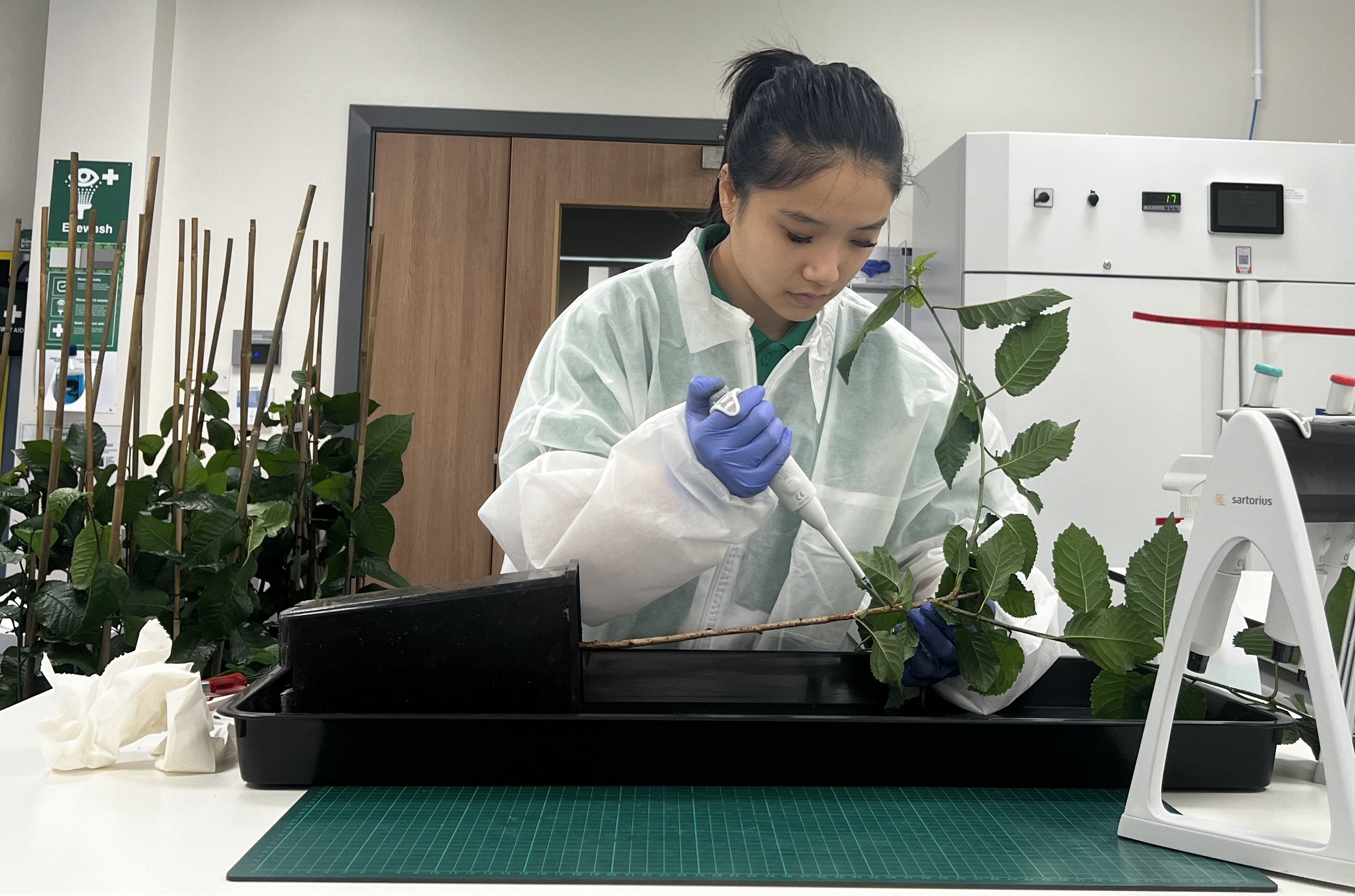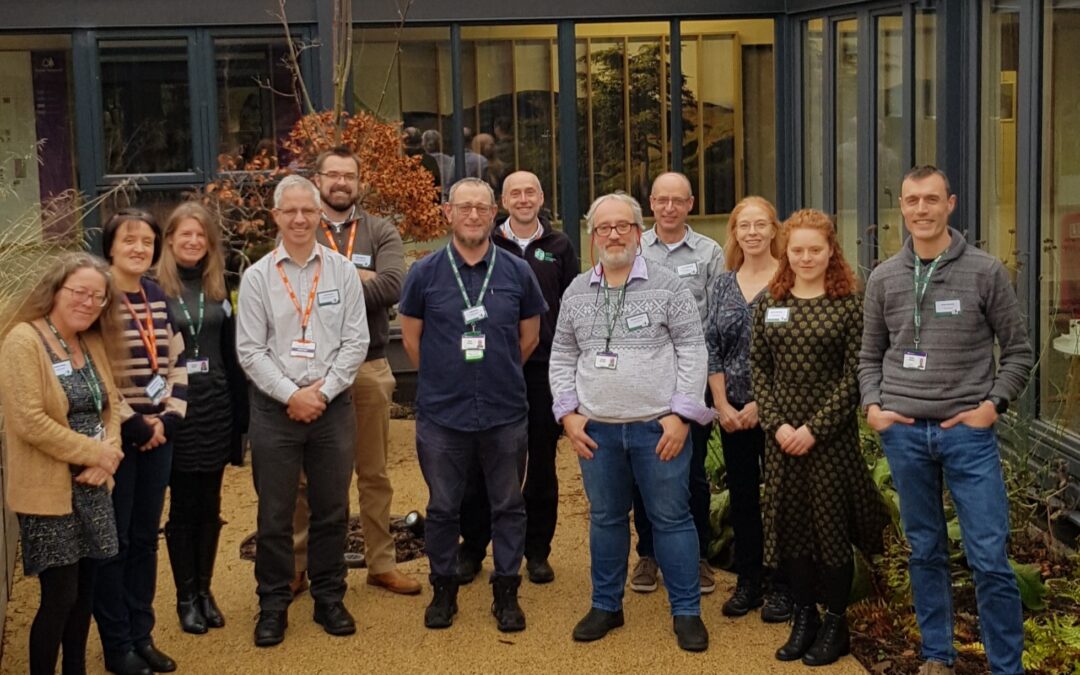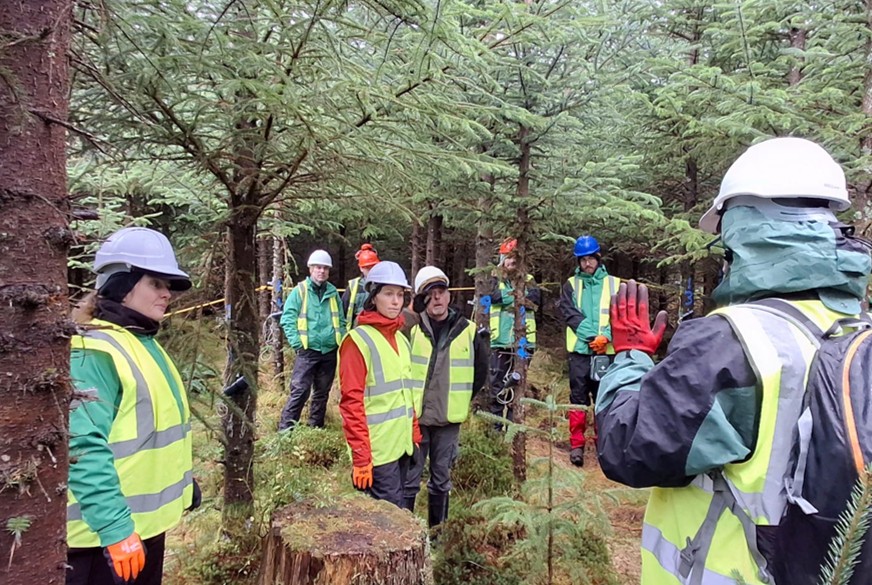British woodlands and trees will benefit from new research aimed at boosting protection against environmental and socioeconomic threats. This National Plant Health Week we are delighted to announce that Defra investing £4 million in the Centre for Forest Protection for 2025-26 in a new programme of research.
Our plants and trees are estimated to contribute £4.1 billion per year to the UK’s economy – their vast canopies are teeming with birds and insects, they help mitigate the impact of flooding for communities across the country, trees outside woodland in towns as well as rural areas are cherished by the British people. But our trees are vulnerable, with plant pests and diseases posing a significant threat to nature and the economy, and the interactions between climate change, pests and diseases and forest management still poorly understood. It is increasingly important to plant and preserve resilient trees that can withstand warmer temperatures and extreme weather events, so that people and nature can enjoy the widespread benefits they bring.
Our new research projects will help plant and protect treescapes that are resilient to stressors including climate change and pests and diseases such as ash dieback, which has been estimated to kill over 100 million trees in the UK and cost the economy up to £15 billion to Great Britain over the coming decades.
Professor Nicola Spence, Defra’s Chief Plant Health Officer, said:
“Tackling the growing threat from plant pests and diseases due to climate change is critical to protect the long-term health and resilience of our trees.”
Dr Louise Gathercole, Centre for Forest Protection Coordinator, said:
“At Forest Research and Royal Botanic Gardens, Kew, we are delighted to continue our collaboration under the Centre for Forest Protection.
“Funding this virtual centre gives us the opportunity to leverage the expertise and resources of both organisations, along with a wide range of other collaborators, to carry out innovative science and produce the evidence needed for future woodland resilience.”
We have 17 new research projects in phase 2 of the Centre:
- Dodging the Double Whammy: Does Resistance to Ash Dieback Help European Ash Avoid Damage by Emerald Ash Borer?
- Knowledge synthesis: How trees evolve under novel conditions
- SUPPoRT: Sustainable Plant Provenancing for Resilient Trees
- Genomic basis of ash health after five and thirteen years’ exposure to ash dieback
- Complex Yew Decline Research
- ADGROW: Applied Dendrochronology for the Genomic Resilience Of Woodlands
- EXPLORATION: Assessing the robustness of mixed species planting as a drought adaptation measure during early stage establishment – an experimental approach
- Enhancing forest resilience through stand structural complexity
- Infusing resilience into the Scots pine genetic resource
- Phenology, Genomics, and Non-Destructive Testing: A Comprehensive Approach to Detecting, Understanding, and Reducing Oak Shake (PhenoGenDT)
- Speed breeding technologies for UK broadleaved trees
- Forest Sector Modelling of the Impact of Biotic and Abiotic Risks on Forest Resilience
- Developing novel methods to understand and mitigate grey squirrel bark stripping behaviour
- Supporting farmers’ on-farm integration of tree resilience actions
- REWARD, Remote Early Warning and Advanced Response for Diseases.
- The wind within the trees: understanding cultural, silvicultural, and timber quality dimensions to windstorm risks and impacts
- Resilience to compound abiotic and biotic stress in native Scots Pine


